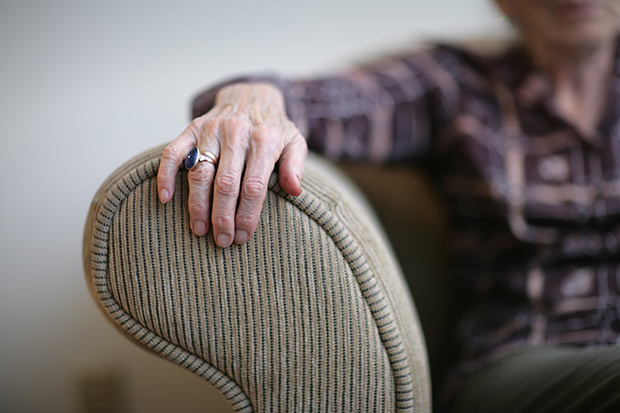
Everyone wants to stay in their own home as they grow older. “Keeping mom at home” has become a standard by which adult children are measured; if you move her out, you are a bad, selfish son or daughter.
Many older adults are staying in their own homes alone; about 28 percent, according to the U.S. Census Bureau. Their spouse has passed away, their children are busy, they no longer drive, and their friends are in the same situation. They have very limited opportunities to socialize regularly with anyone, but they are still in their own home, so it’s all ok — or is it?
Research suggests it’s not ok. Living alone is the number-one risk factor for social isolation. Forty five percent of those aged 65 or older are either widowed, divorced, or separated. Many are living alone rather than with family, a roommate, or caregiver. Lack of opportunities for socialization and contact with others has been linked to depression, long-term illness, risky health behaviors (poor diet, lack of exercise), high blood pressure, cognitive decline, and higher risk of mortality. Those who are lonely have higher healthcare costs. Medicare spends an estimated additional $6.7 billion on costs associated with those who are isolated, according to a 2017 study by AARP Public Policy Institute and Harvard University. Some of the causes of this additional spending were more costly hospital stays because they could not be discharged safely without support, and these seniors were also one-third more likely to be admitted to skilled nursing facilities, also because they lacked support.
This study does not clearly indicate that people are sicker because they are isolated. It could be as likely they are isolated because they are sicker. However, we need to find better ways to identify and prevent social isolation to improve the wellbeing of all seniors.
If your parent or other loved one is isolated, what can be done? These ideas may help.
- Define what is keeping mom and dad isolated. Sometimes, it’s one underlying problem which can be solved. Maybe they just don’t know what to do or where to go; helping find senior centers or other resources is all it takes to get them moving.
- Use technology. FaceTime, Skype, or other video applications can help you reach out, even from far away. Many senior centers are now offering virtual programs through which mom or dad can participate from home. Conversing with Alexa or Siri may also help!
- Volunteering can not only provide social interaction, but be deeply satisfying and meaningful. Opportunities are everywhere, from the local hospital to the pet shelter. Ride-sharing with another volunteer can make the experience even more meaningful and is a great option for those who no longer drive.
- Don’t discount a move out of the house and into a senior community, especially if medical or memory issues exist. Activities are abundant and new friends are waiting. Healthy food and exercise opportunities are readily available to stay in top shape. It’s worth a visit to see the available options!
Meadows offers senior living options, including independent living, skilled nursing care, memory care, respite care, and inpatient or outpatient Achieve Wellness and Rehab Therapy. Call Meadows Mennonite Retirement Community in Chenoa at 309-747-3635 to learn more about Meadows, or visit www.MeadowsCommunities.org.

